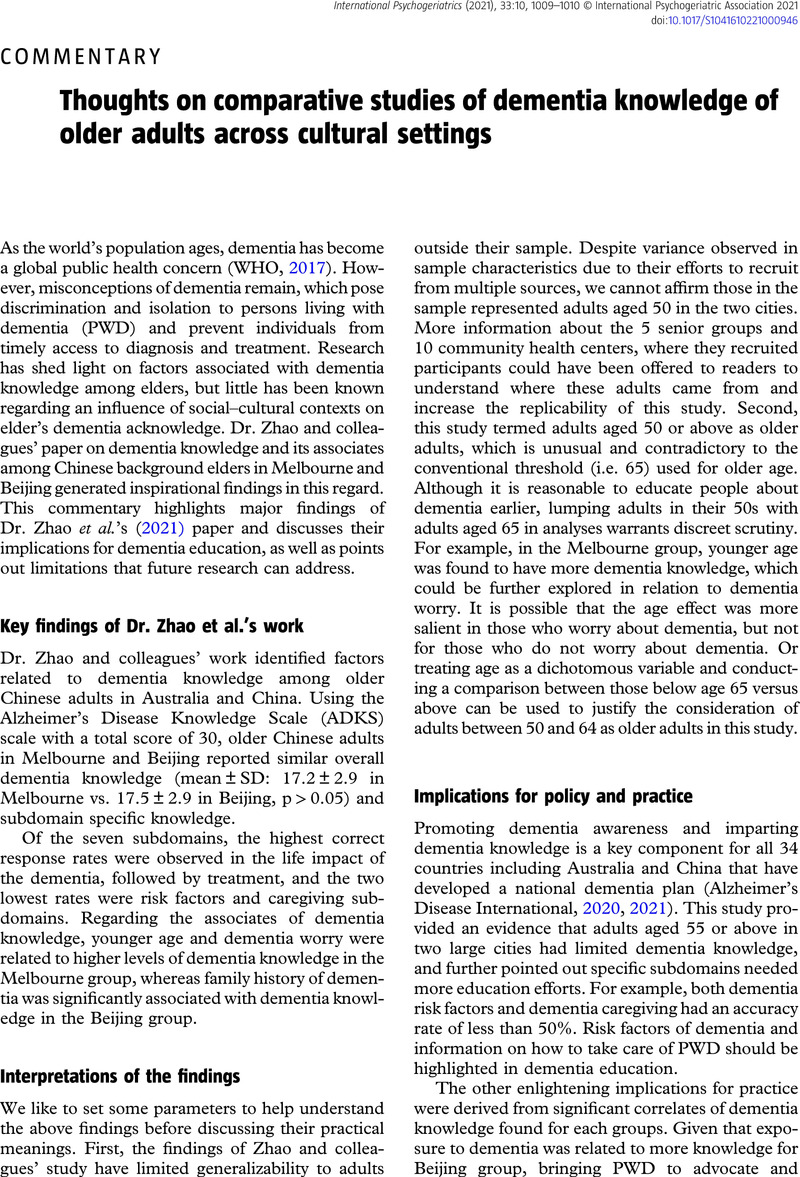No CrossRef data available.
Article contents
Thoughts on comparative studies of dementia knowledge of older adults across cultural settings
Published online by Cambridge University Press: 29 June 2021
Abstract
An abstract is not available for this content so a preview has been provided. Please use the Get access link above for information on how to access this content.

- Type
- Commentary
- Information
- International Psychogeriatrics , Volume 33 , Special Issue 10: Issue Theme: Non-cognitive Concerns in People with Dementia , October 2021 , pp. 1009 - 1010
- Copyright
- © International Psychogeriatric Association 2021
References
Alzheimer’s Disease International (2020). China adopts a national dementia plan. Retrieved from https://www.alzint.org/news/china-adopts-a-national-dementia-plan/
Google Scholar
Alzheimer’s Disease International (2021). Dementia plans. Retrieved from https://www.alzint.org/what-we-do/policy/dementia-plans/
Google Scholar
Carpenter, B. D., Balsis, S., Otilingam, P. G., Hanson, P. K. and Gatz, M. (2009). The Alzheimer’s Disease Knowledge Scale: development and psychometric properties. The Gerontologist, 49(2), 236–247.CrossRefGoogle ScholarPubMed
Sun, F., Gao, X., Shen, H. and Burnette, D. (2014). Levels and correlates of knowledge about Alzheimer’s disease among older Chinese Americans. Journal of Cross-Cultural Gerontology, 29, 173–183.10.1007/s10823-014-9229-6CrossRefGoogle ScholarPubMed
World Health Organization (2017). Global action plan on the public health response to dementia 2017–2025. Retrieved from https://www.who.int/publications/i/item/9789241513487
Google Scholar
Zhao, M. et al. (2021). Dementia knowledge and associated factors among older Chinese adults: a cross-national comparison between Melbourne and Beijing. International Psychogeriatrics, 33, 1057–1067.Google Scholar




